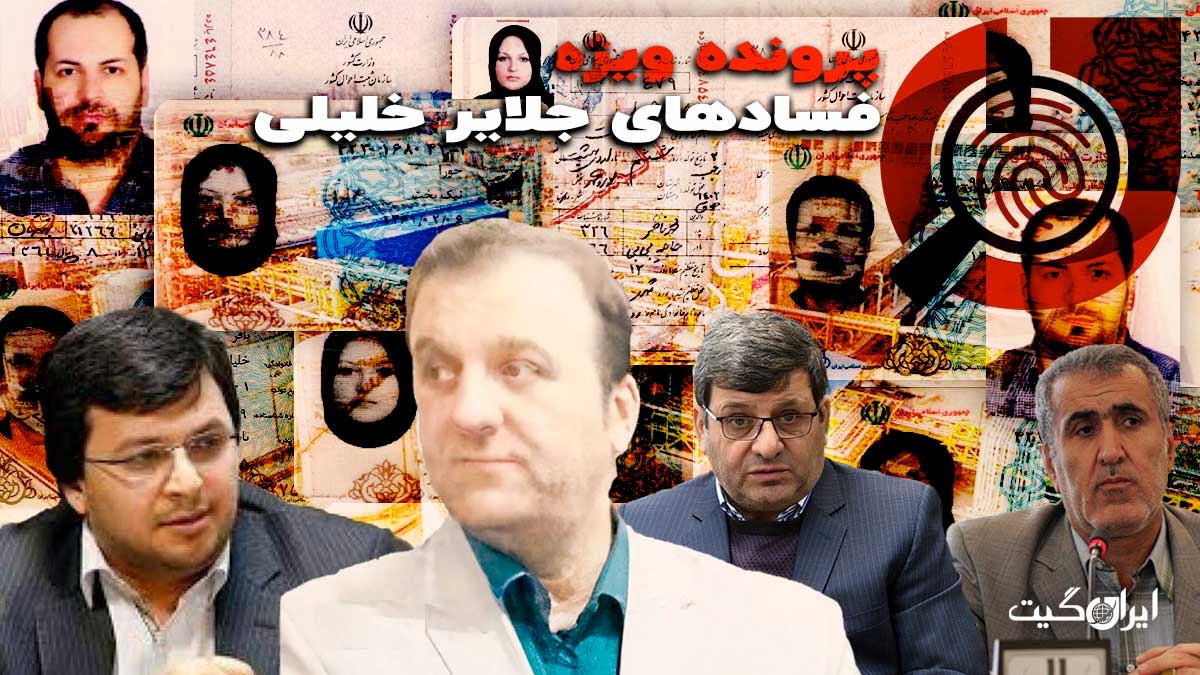What happened to the unintended neighbor in Evin who became a spy partner with Jalayer Khalili?
According to Iran Gate, Jalayer Khalili, who was a partner and comrade of Farhad Abdollahi, quickly took over the company owned by him when he was arrested by forging his signature. This report is about what happened to Farhad Abdollahi.
It was in November 2015 when, after the discussions by the Supreme Leader regarding the issue of infiltration, the Sepah Intelligence Organization created a project to demonstrate its obedience and speed of action to the rival Ministry of Intelligence.
In this case, not only the Security Council Secretariat, but also the Ministry of Intelligence, was not in agreement and cooperation with the Sepah Intelligence Organization. However, due to the opposition or, better to say, the support of the Sepah Intelligence Organization with the Rouhani government and the affiliation of two other security institutions with the government, they naturally did not show any real opposition and played along. But the narrative I’m telling you has no connection to our case, the infiltration project and dealing with the accused journalists.
The simultaneous discussion topic is the case of infiltration and arrest of several journalists with the case of the missing oil rig during the Ahmadinejad government, and the arrest of several suspects in a major economic scandal. They were initially held in individual cells and then transferred to a communal detention center with two neighboring and adjoining cells.
But the subject of this report is an individual named Farhad Abdollah Saleh, a man of about 43 years old with average height, curly and thick hair, and a well-built physique. What was interesting about Abdollah Saleh for me and other colleagues was his good spirit during solitary confinement and his mostly childlike ways of trying to gain the trust of interrogators and guards. Of course, these behaviors sometimes created self-made traps for Farhad, in which he himself became trapped.
I remember that Abdollah Saleh tried to prove his righteousness in detention by reciting simple verses or well-known prayers out loud to the detention center or interrogator. However, this vocal pollution, due to Farhad’s inappropriate voice, caused inconvenience to other inmates. But once in the interrogation room, it became a problem for Abdollah Saleh himself.
Those who have experienced detention by the Revolutionary Guards for any reason know that the interrogation rooms are located in a building next to each other, and the sounds from other rooms can be easily heard in the adjacent room. One day, while I was in the blue room filling out interrogation forms, I heard that my fellow detainee, Farhad, who was a strong person with a loud voice and disrespectful tone, went to the neighboring room and asked Farhad to recite the prayer for the reappearance of Imam Mahdi with a loud voice. At that moment, Farhad, who was either shocked or had just heard the name of the prayer for the first time, was in a state of confusion.
The interrogator, who was very pleased with this cunning and trickery, said mockingly with a bitter humor, ‘Boy, this prayer has been recited every day from the first day of school to the end of high school, and there is not a day that it is not broadcasted on TV. And you don’t even know its name. Yet, you recite the Quran loudly for me, you hypocrite liar. From the beginning, you should have been interrogated to see how much impurity there has been in your answers.’
Interestingly, Farhad chose a different approach to free himself from the long isolation he had been trapped in for about three months until December 2015. It was pure cooperation and obedience that Abdolsaleh, the interrogator, took full advantage of. He forced Farhad, in lengthy sessions, to demonstrate how he had physical encounters with the women he had relationships with. The interrogator’s behavior was so disgraceful and abusive that it made me feel ashamed in another room in the interrogation building.
However, he did this to put pressure on Farhad to obtain important names in the case, and he succeeded. By reaching the name of Ataollah Mahajerani, the former Minister of Guidance, he was able to also arrest him and complicate the case with credible names in the opposing political front. But the strange thing about Abdolsaleh was that he thanked him after each interrogation session, which once even made the interrogator laugh, and I never understood the reason behind this gratitude after all the harsh and demeaning inhumane behavior.
What I and my fellow inmates in the general ward concluded was that although Abdolsaleh himself was anonymous, he held the black box of important names. He had been a host and recipient of these influential figures from New York to Dubai.
What made me successful in hearing the interrogation process was the shared and motivating interrogator who, in the final days of my case when I was waiting for bail, left me alone with a pile of white papers and went to the adjacent room to make arrangements with Farhad Abdolsalehi for which deity only knows.


